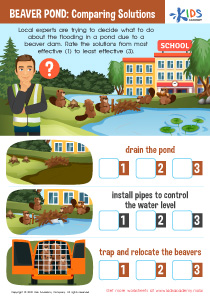Vocabulary Quizzes for Ages 6-7
18 results
18 filtered results
Clear all filters18 filtered results
-
From - To
Vibrant Vocabulary Voyage: Ages 6-7 Interactive Quizzes
Dive into the world of words with our Vibrant Vocabulary Voyage, designed exclusively for children ages 6-7! Our interactive quizzes offer a fun and engaging way to enhance vocabulary skills, tailor-made for young learners on the brink of reading adventures. With each quiz, your child will explore new words, check their understanding, and receive instant feedback to guide their learning journey. Perfect for reinforcing classroom lessons or at-home enrichment, our quizzes make vocabulary building an exciting quest. Embark on this educational adventure and watch your child's language skills blossom!
Interactive quizzes on Vocabulary for Ages 6-7 are revolutionizing the way children engage with language and words during their critical years of learning. These quizzes are ingeniously designed to cater specifically to the cognitive and developmental needs of children aged 6 to 7, a period when they are incredibly receptive to new information and are building the foundational blocks of their literacy skills.
The importance of possessing a robust vocabulary at a young age cannot be overstated. It is the cornerstone of effective communication, reading comprehension, and academic success across all subjects. Interactive quizzes on vocabulary make the learning process both effective and enjoyable, transforming what could be a tedious task into a fun and engaging activity that children look forward to.
One of the key benefits of these quizzes is their ability to adapt to the individual learning pace and style of each child. Unlike traditional classroom settings where a one-size-fits-all approach is often applied, interactive quizzes can adjust their difficulty levels and the nature of their questions based on the child's performance. This personalized learning experience boosts the child’s confidence and keeps them motivated, ensuring they are neither bored by tasks that are too easy nor discouraged by those that are too challenging.
Furthermore, the quizzes incorporate a wide variety of question types, from multiple-choice questions to match-the-following and fill-in-the-blanks. This not only maintains a high level of engagement but also ensures a comprehensive exploration of vocabulary, covering synonyms, antonyms, meanings, and usage in sentences. By encountering words in diverse contexts, children develop a deeper understanding and retention of vocabulary, which is essential for their reading and writing skills.
The interactive element of these quizzes is particularly beneficial. Features such as immediate feedback on answers allow children to learn from their mistakes in real-time, turning every wrong answer into a learning opportunity without the fear of judgment. Additionally, interactive elements like animations, sounds, and rewards for correct answers or completed quizzes make learning a joyous experience. This positive reinforcement encourages children to continue exploring and learning new words, fostering a love for language that can last a lifetime.
Moreover, the accessibility of these quizzes online means that learning can happen anytime and anywhere, making it easy to integrate into a child’s daily routine. Whether it's a quiet time at home, a long car ride, or a wait at the doctor's office, these quizzes provide a productive and educational use of screen time.
For parents and educators, the quizzes offer valuable insights into a child's progress and areas that may require additional attention. This enables the provision of targeted support to help children overcome any challenges and continue to progress in their vocabulary journey.
In conclusion, interactive quizzes on Vocabulary for Ages 6-7 are an invaluable tool in nurturing a child's language development. They make learning enjoyable, personalized, and effective, laying a strong foundation for academic success and a lifelong passion for words. By engaging with these quizzes, children not only expand their vocabulary but also build confidence in their ability to communicate and understand the world around them.













